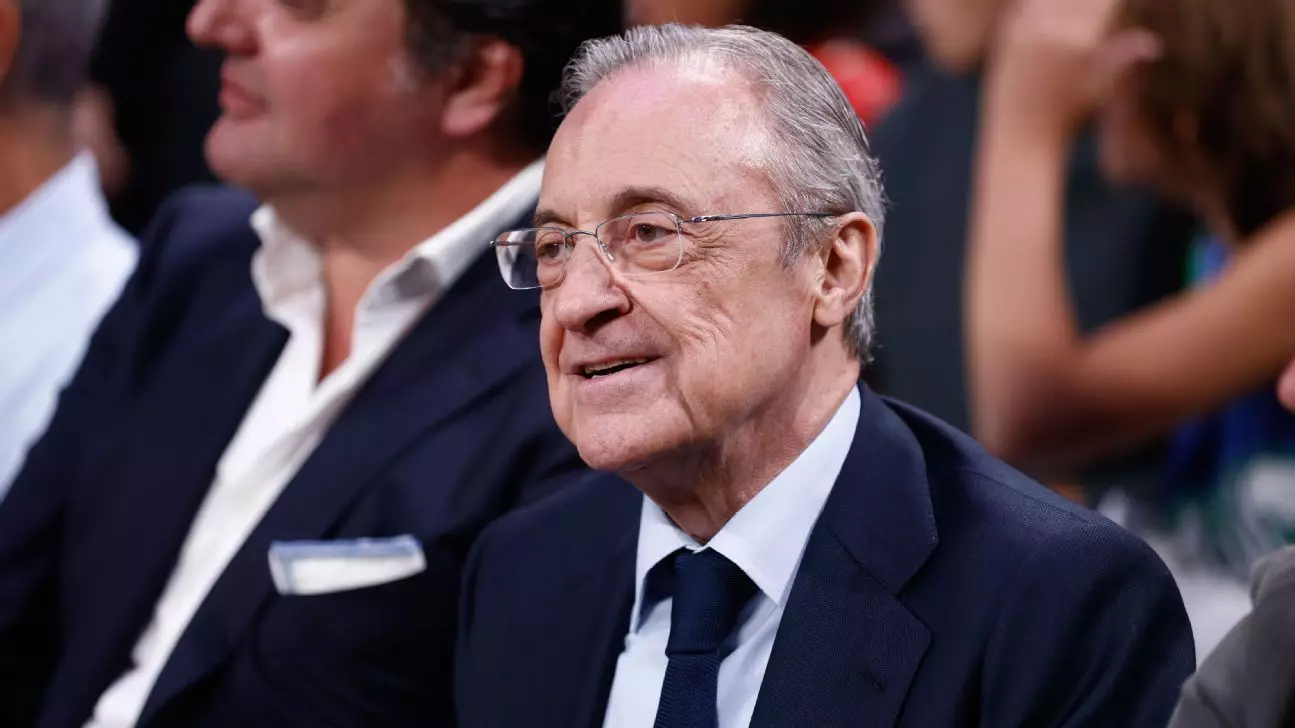The recent uproar surrounding the Ballon d’Or voting results has not only highlighted the intricacies of international sports journalism, but it also underscores the inherent biases and perceptions surrounding the criteria for determining the world’s best football player. The clash between Real Madrid’s president, Florentino Pérez, and Namibian journalist Sheefeni Nikodemus serves as a representation of broader cultural and national tensions present in the world of sports.
A Show of Frustration
The animosity stemming from Pérez’s remarks at Real Madrid’s AGM, where he lambasted a group of international journalists, suggests a deeper frustration within the football community. Pérez expressed his discontent regarding the votes from journalists based in Namibia, Uganda, Albania, and Finland, categorically stating that they held little significance in the grand scope of football. His main contention was the belief that such votes should come from individuals of notable reputations and backgrounds within the sport. It paints a picture of an elitist view in which only certain perspectives are deemed valid.
Pérez’s assertion raises questions about the criteria for credibility and expertise. Why should the opinions of journalists from smaller or less prominent football nations be disregarded? This viewpoint risks alienating a large segment of the global audience that cherishes the game, particularly those whose voices are often underrepresented. While it is true that football powerhouses like Spain, Brazil, and Germany historically dominate discussions surrounding the sport, this does not inherently diminish the value of opinions derived from nations that may not boast the same accolades.
In response to Pérez’s sentiments, Sheefeni Nikodemus articulated a fundamental criticism that strikes a chord in modern sporting discourse: the importance of inclusivity in the voting process. By questioning Pérez’s premise that votes from smaller nations should carry less weight, Nikodemus highlights a pertinent issue: the emphasis should be on the quality and integrity of the voters, not merely their geographical prestige. This point is vital in a world increasingly driven by globalization and an appreciation for diverse perspectives.
Nikodemus’s retort implies a provocative challenge to traditional narratives within sports, encouraging a re-evaluation of who has the authority to evaluate talent. The essence of sports journalism should not revolve solely around the fame of the polling journalists but should prioritize thoughtful analysis and genuine appreciation for players from varied backgrounds. His inquiry resonates with those who champion the idea that football is a global sport—a melting pot of nations contributing to a rich tapestry of talent and narratives.
The Ballon d’Or, with its voting format that includes a pool of 100 international journalists, holds a certain prestige; however, it also brings to light potential biases based on regional influences. For instance, Rodri’s accomplishment—winning the trophy after an impressive showing in the Euro 2024—underlines how national pride can sway perceptions in favor of players representing teams that recently enjoyed significant victories.
It is worth noting that while individual performances matter, the context surrounding these achievements also heavily influences voting trends. Vinícius Júnior’s notable contributions to Real Madrid’s success cannot be overlooked. However, his underwhelming performance with the Brazilian national team during crucial tournaments like Copa América left an imprint that arguably diminished his standing, despite his formidable skill set. This phenomenon emphasizes how narratives within football are often formed not on raw talent, but on situational contexts that influence journalists’ perceptions.
In the end, Pérez’s criticisms invite a much-needed dialogue in the football arena about the significance of every journalist’s perspective, regardless of where they hail from. There’s an undeniable urge for democratic representation in voting, ensuring that players receive recognition for their contributions to the sport. As football continues to evolve and expand, each voter—be they from a major footballing nation or a lesser-known entity—should be afforded the respect and influence their role demands.
The Ballon d’Or is more than just an accolade; it embodies the passion and dedication of countless individuals both on and off the field. The realm of football thrives on inclusivity, an understanding that every voice brings with it valuable insight. The sport belongs to a global community, and in such a domain, every opinion should matter. In navigating the complexities of international sporting awards, it becomes all the more crucial to acknowledge and respect the diverse array of voices that define the beautiful game.

